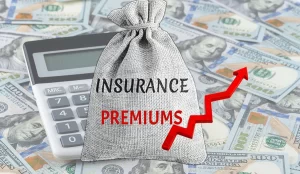Many insurance companies offer benefits that customers don’t ask for or are unaware of. Different auto, home, health, and life insurance policies offer different discounts, some of which are automatic and others are required. Common discounts include safety features, loyalty rewards, combined policies, excellent driving records, professional connections, and payment method discounts. Advanced risk algorithms allow insurers to offer lower premiums to customers with low claims histories. Many insurance companies are using telematics and smart home technology to offer personalized discount programs that reward risky behavior with significant savings. Learning the language of discounts is the first step toward lowering insurance costs without sacrificing quality.
Perfecting the Price Comparison
Every 12 to 24 months, savvy insurance consumers compare rates from multiple providers to save hundreds of dollars. Online comparison tools that provide quick quotes from hundreds of providers have simplified this process in the digital insurance world. In addition to the premium, real price comparisons also look at policy limits, deductibles, and the reputation of the insurance company. Independent insurance brokers can help consumers navigate the insurance market by offering discounts on insurance coverage that customers may not have themselves. Timing is key: insurers can provide relief based on seasonal or demographic factors. A few hours of research can often reveal significant price differences for similar coverage from different providers.
Use Strategic Bundling
Insurers compete for customers who bundle multiple policies and receive large discounts. The most popular packages include auto and home insurance, with discounts ranging from 10 to25% on both. Some insurance companies offer discounts on comprehensive insurance, RV insurance, and life insurance. Bundling helps insurers retain customers because policyholders with multiple policies are less likely to switch insurance companies. Before purchasing a bundle, check whether the savings outweigh any cheaper policies. Some experienced buyers use spreadsheets to compare bundled and unbundled options for different combinations of suppliers to find the best solution.
Optimize Policy Details to Save Money
Strategic policy changes can reduce premiums without compromising insurance coverage. You can save money immediately by increasing your deductible, especially on your home insurance and comprehensive auto insurance. Save money by purchasing unnecessary insurance, such as rental car insurance, if you have credit card protection. For older cars, when the value does not justify the premium, you can save money by eliminating collision coverage. Additional medical tests can confirm excellent health, which can reduce the premium for life insurance. Policyholders should review their coverage limits with their agent annually to avoid being overinsured on certain products and underinsured on other products that have increased in value.
Take Advantage of Behavioral Discounts
Insurers now offer systems based on usage and behavioral monitoring that offer discounts to low-risk consumers. Telematics programs for auto insurance use mobile apps or plug-in devices to analyze driving patterns, reducing premiums by 30% for safe drivers who brake hard, accelerate hard, and avoid late-night driving. Smart home technologies such as water leak detectors, burglar alarms, and fire detection systems can reduce risk and provide homeowners with savings. Some health insurers offer wearable device plans to encourage exercise through premium discounts or deductible reductions. These products require personal information, but many consumers value financial rewards over privacy concerns. If you don’t want constant monitoring, defensive driving courses and home security inspections can save money.
Building Long-Term Relationships for Loyalty Rewards
Long-term customers can take advantage of hidden loyalty discounts from insurance companies. These discounts can increase over time. If you have continuous insurance, some insurance companies offer accident forgiveness programs to prevent your premium from increasing after your first accident for which you are liable. Some insurers provide a sliding deductible, which reduces your out-of-pocket expenses each year if you do not file a claim. While it is important to compare different providers, you will generally get the best loyalty benefits if you stay with the same provider for 3–5 years. Some insurers automatically apply “continuation discounts” after milestones in the policy term. To extend your policy, pay premiums on time, avoid small claims, and review your policy with your agent.
Find Hidden Niche Discounts
Most consumers are not aware that several insurance companies offer specialized savings options. Organizations, alumni, and employers sometimes arrange group insurance savings with preferred insurance companies. Students with high GPAs can get discounts for excellent grades, while teachers, nurses, and military personnel often get discounts for their careers. Green car subsidies are available for owners of hybrid and electric vehicles, but low-mileage drivers can also take advantage of them. You may get discounts from some insurance companies by using electronic billing, opting for automatic payments, and paying your annual premium in one go. Keeping track of the building materials, fire hydrants, and roof modifications in your home can help you get discounts on your home insurance.
Strategic Sourcing Options
Economic factors, regulatory changes, and business objectives all affect the insurance market. Timing is therefore an often overlooked discounting factor. Auto insurance premiums can drop in certain months, for example, as insurers adjust their risk models or meet sales targets. Homeowners can sometimes get lower rates before severe weather hits or after safety measures are in place. Life insurance applicants who apply before their milestone birthday can benefit from better rates. We recommend that you re-quote your policy once your credit status has improved significantly. Most insurance companies base their premiums on your credit score. Please review and update your policy information annually to ensure you take advantage of any new discounts available since your last renewal.
Negotiate Professionally with Your Providers
Insurance premiums are negotiable, especially for repeat customers with a favorable history. However, many policyholders are unaware of this. During the renewal meeting, make a competitive offer and receive the corresponding discount. Direct questions such as, “What discounts am I not currently getting?” or “How do I qualify for a lower interest rate?” motivate the agent to review your file and find any missed savings. Loyal customers have the ability to negotiate fee waivers, insurance benefits, or loyalty bonuses in private. To successfully negotiate insurance, you need to be polite and persistent, demonstrate that you are a low-risk customer, and be willing to switch insurers if your current insurer cannot accommodate reasonable requests. Several retention specialists at insurance companies offer discounts if they believe you will leave.
Year-Round Risk Optimization
Personal risk affects the coverage and premiums of all policies. Good driving habits are the best way to get the best auto insurance premium. Some insurance companies offer discounts if you have been accident-free for five to ten years. Protective measures such as storm shutters, security systems, and fire-resistant landscaping can reduce your premium. People who purchase health insurance should know how their insurer calculates tobacco use, BMI standards, and other health characteristics that affect premiums. Improving your cholesterol, blood pressure, and other health parameters before purchasing life insurance can help reduce costs. Your credit score affects the price of most insurance policies, except in states where it is illegal. Prudent financial behavior can therefore indirectly lower your premiums.
Conclusion
To get significant discounts on your insurance premium, you need knowledge, strategy, and persistence. By understanding the discount environment, comparing options regularly, adjusting policy terms, and maintaining a low-risk attitude, consumers can save 20–40% without sacrificing insurance quality. The most successful discount hunters review their insurance coverage every year and look for new ways to save money. Insurance companies want to keep low-risk customers. If they do it right, they will get creative about how to retain your clientele. With just a few of these discount strategies, you can save hundreds or thousands of dollars per year. Those savings will save you money in the long run.
FAQs
1. How often should I shop for cheaper insurance?
Compare quotes every 12to24 months or after a major life change (marriage, new home, etc.) to find the best price.
2. Does comparing insurance rates hurt my credit?
Compared to credit applications, insurance applications have a “soft pull” that doesn’t affect your credit score.
3. Higher deductible or lower premium: Which is better?
Consider your emergency reserves and choose the highest deductible you can afford to maximize your premium savings.
4. Do all insurance companies offer similar discounts?
No, discount programs vary widely from company to company, so it’s worth shopping around.
5. How much money can you save by bundling policies?
The average discount is 10to25% if you bundle multiple policies with the same provider.




